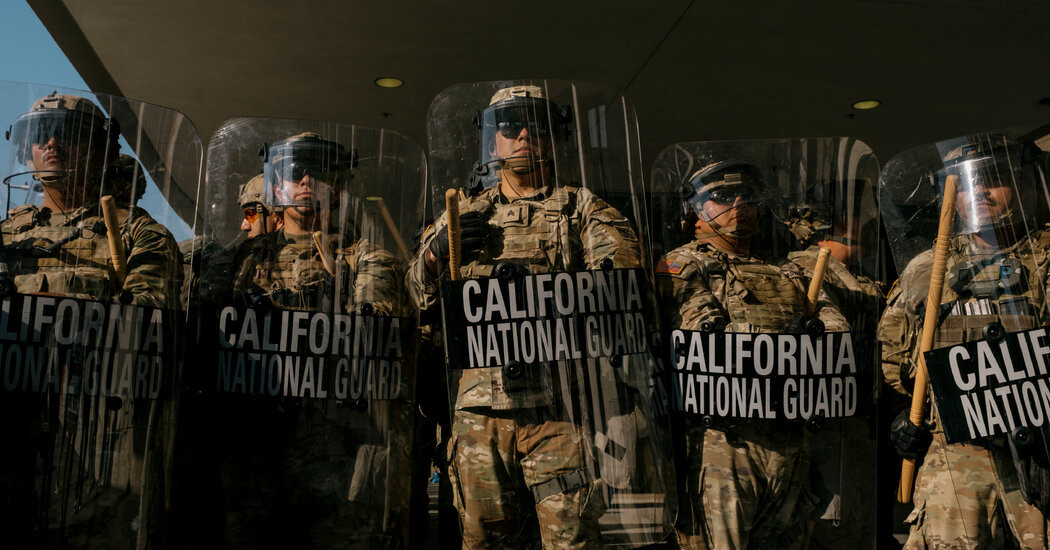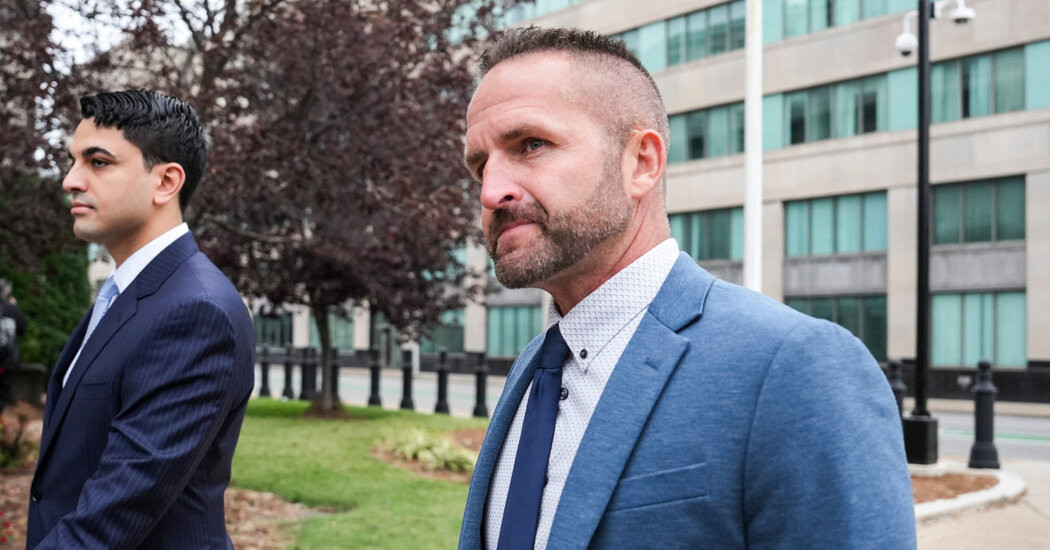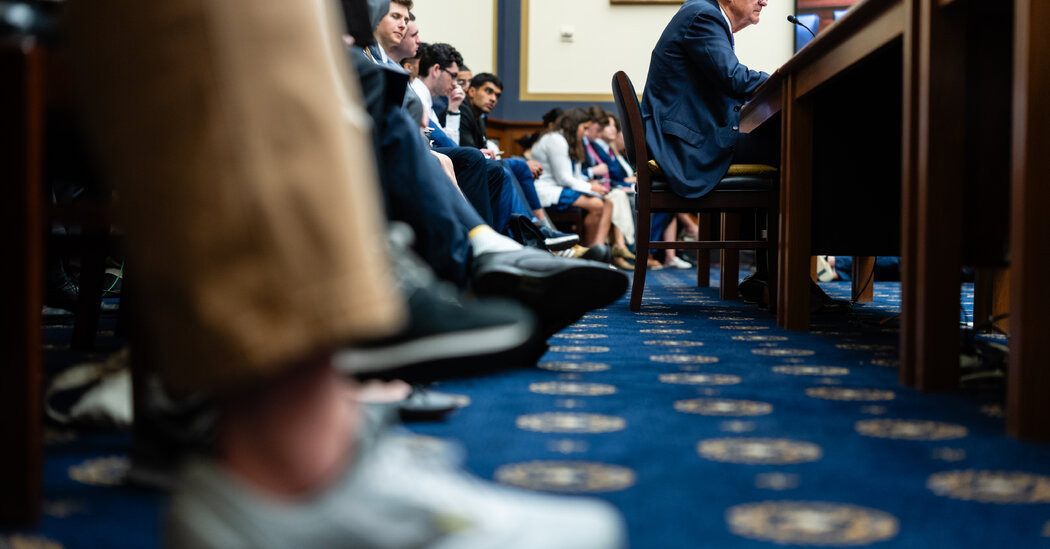Trump’s National Guard Troops Are Questioning Their Mission in L.A.

Thousands of National Guard members have served in the L.A. region since last month. Six soldiers spoke in interviews about low morale over the deployment.
When the California National Guard rolled into Los Angeles to respond to devastating wildfires in January, Southern Californians largely hailed the troops as heroes. Celebrities thanked them for their service in Pacific Palisades. Suburban homeowners competed to chat them up at traffic checkpoints in Altadena.
Seven months later, much of that good will is gone.
Protesters jeer the troops as they guard federal office buildings. Commuters curse the behemoth convoys clogging freeways. Family members grill members with questions about whether they really have to obey federal orders.
The level of public and private scorn appears to have taken a toll on the National Guard deployment to Los Angeles that President Trump announced last month, citing protests over immigration raids. Interviews with nearly two dozen people — including soldiers and officers as well as officials and civilians who have worked closely with the troops — show that many members of the Guard are questioning the mission. The deployment’s initial orders to quell scattered protests have given way to legally disputed assignments backing up federal immigration agents.
“They gave Disneyland tickets to the people who worked in the wildfires,” one soldier said. “Nobody’s handing out Disneyland tickets now.”
Six members of the Guard — including infantrymen, officers and two officials in leadership roles — spoke of low morale and deep concern that the deployment may hurt recruitment for the state-based military force for years to come. Those who were interviewed spoke on the condition of anonymity, because military orders bar Guard personnel from publicly discussing the federal deployment and they feared retribution for talking to the media.
All but one of the six expressed reservations about the deployment. Several said they had raised objections themselves or knew someone who objected, either because they did not want to be involved in immigration crackdowns or felt the Trump administration had put them on the streets for what they described as a “fake mission.”




